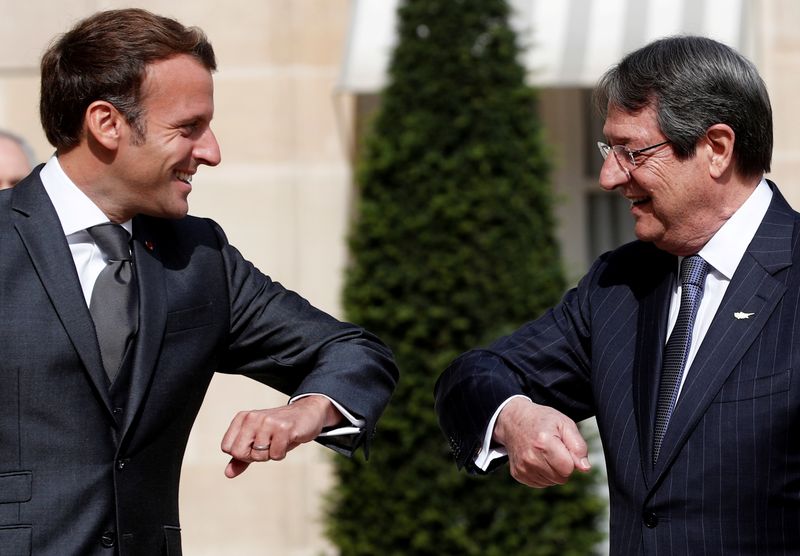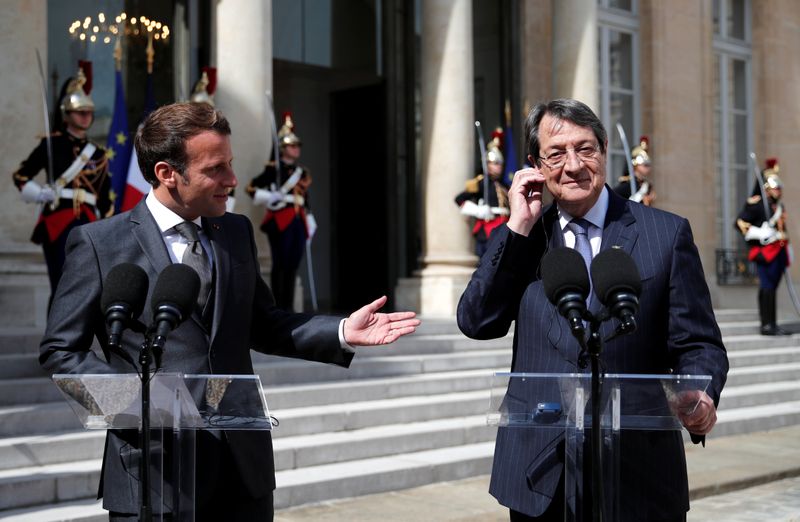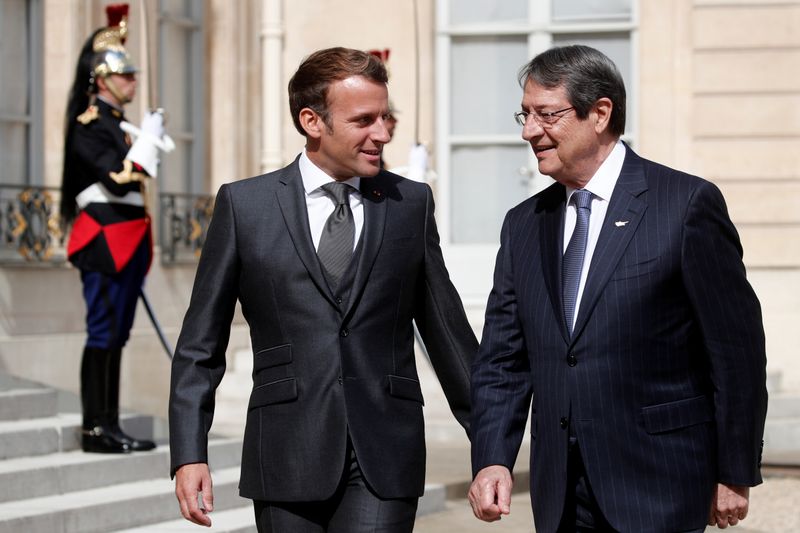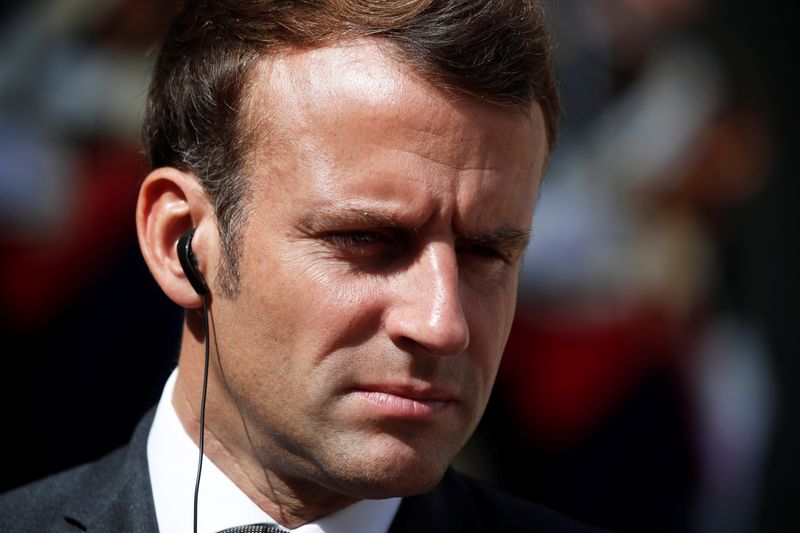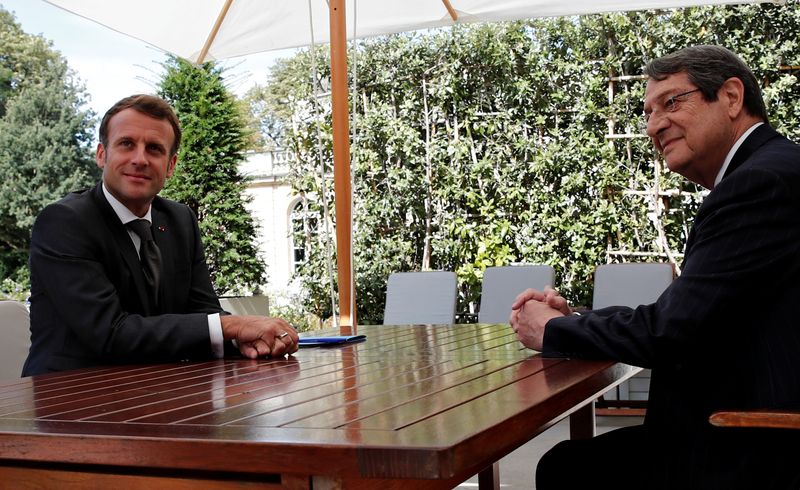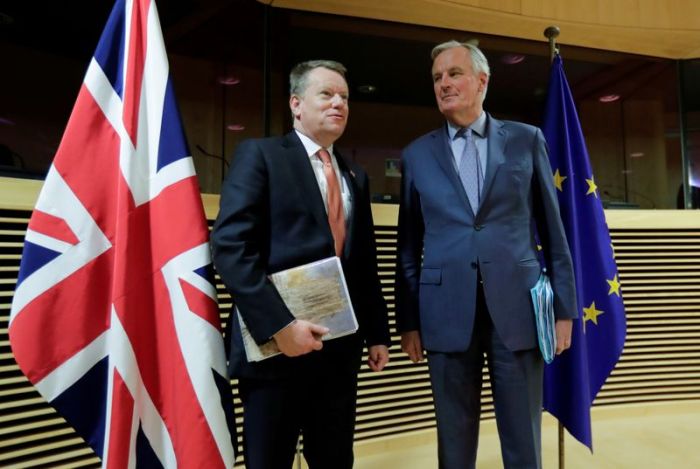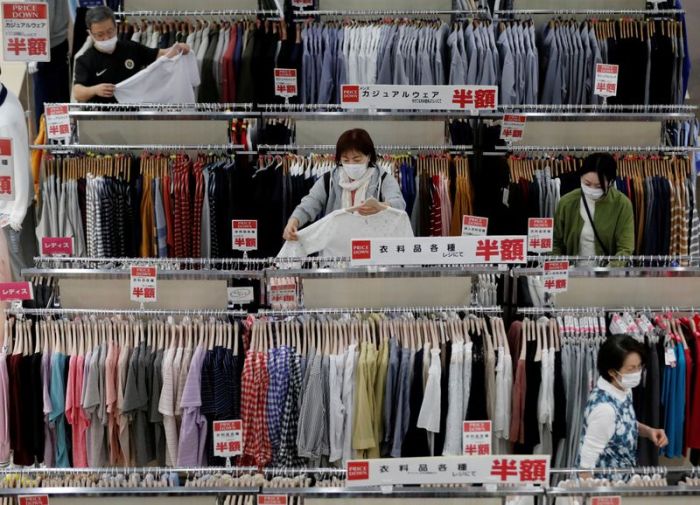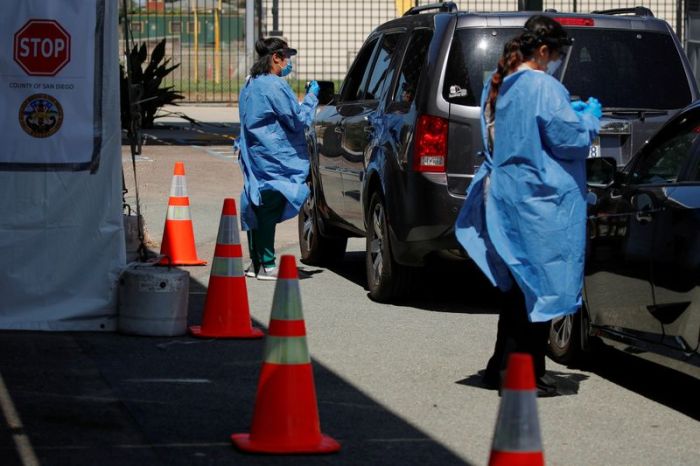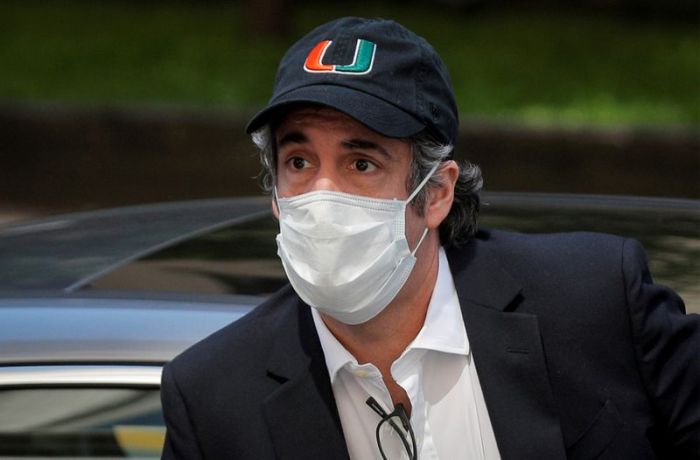PARIS (Reuters) – French President Emmanuel Macron on Thursday demanded EU sanctions against Turkey for “violations” of Greek and Cypriot waters and said the European Union should act over the crisis in Libya.
Turkey and Greece are at loggerheads over overlapping claims for natural gas reserves, brought into sharp focus by attempts of EU member Cyprus to explore for gas in the Eastern Mediterranean amid strong Turkish objections. [nL5N2ES6F8]
Macron’s comments came after Turkey’s navy on Tuesday issued an advisory for seismic surveys in an area of sea between Cyprus and Crete, a move Greece said was an attempt by Ankara to encroach on its continental shelf.
It also comes as relations between Paris and Ankara, two NATO allies, fray, with Paris repeatedly pointing the finger at Ankara over its role in Libya.
“I stand fully behind Cyprus and Greece in the face of the Turkish violations of their sovereignty. It is unacceptable that the maritime space of (EU) member states be violated and threatened,” Macron told reporters alongside his Cypriot counterpart, Nicos Anastasiades.
“Those who are doing that must be sanctioned.”
He said it would be a “serious mistake” for the EU to not respond.
Ibrahim Kalın, chief adviser to Turkish President Tayyip Erdogan, told a think-tank event in Brussels on Thursday: “Using the language of threats of sanctions will never fly here and will have no impact on Turkey’s sovereignty or determination in pursuing the national interest.”
On July 13, EU foreign ministers agreed to prepare additional listings within the existing sanctions framework on Turkey’s drilling in the Eastern Mediterranean, as requested by Cyprus.
Macron has also criticised Turkey for months over Ankara’s role in Libya, and on Thursday said the EU should now push for sanctions. He did not identify nations or people that should be penalised for their involvement in the North African country’s conflict.
“It (sanctions) is necessary to obtain a ceasefire and begin a real dynamic towards a political solution to the Libyan conflict,” he said.
Russia and Turkey are the key players in Libya’s conflict, where they support opposing sides. Russia, the United Arab Emirates and Egypt back the eastern-based forces of Khalifa Haftar, while Turkey has helped the Tripoli-based Government of National Accord (GNA) repel Haftar’s attempt to storm the capital.
Turkey accuses France of supporting Haftar politically, having previously given him military assistance to fight Islamist militants. Paris denies this.
(Additional reporting by Robin Emmott in Brussels; editing by William Maclean and Nick Macfie)

